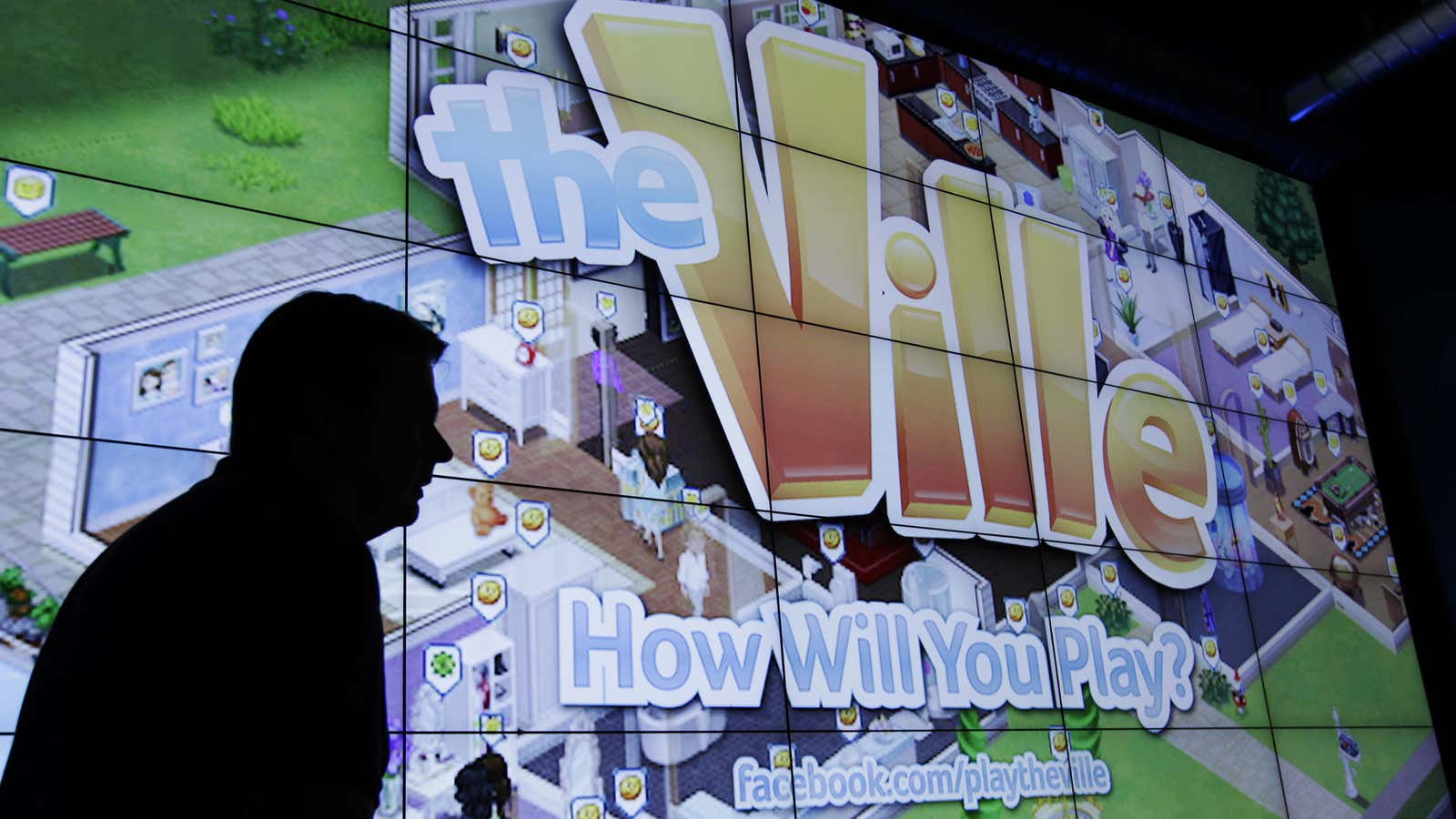Update, March 8 2013 2:35pm:
Zynga VP Dan Porter, via email:
“My quote was taken out of context. What I said was that everyone in the games business copies games. That is the nature of the business and has been well before Zynga was ever in business. My point was that obsessing over the copying of games is really not that interesting and misses the main point. In that we were talking about the future of social games, which are delivered as a service, my main point was that the operation of games as a service is the real thing that people should think about in social games and the most critical aspect of the future of games. That is the truly hard thing, and as I said in the talk, the genius of Zynga. It’s been the greatest thing I learned at Zynga. It’s why four years later so many people still play words with friends and poker, because those games truly understand how to continue to keep people engaged. Debating originality in social and mobile games is a distraction when thinking about the future of the games business. As Dave Eggers said: “We are all feeding from each other, all the time, every day.” The heart of the matter and what will drive the future of social games is the skill set and strategy of keeping those games active and fresh over time, and no one does that better or knows more about that than Zynga. Hits will come and go up and down the charts. But those folks who still have people playing their games months later are the real geniuses in the games business.”
Original post:
“Zynga is often accused of copying games, which is mostly true,” Zynga VP Dan Porter said Wednesday night at a panel discussion in New York hosted by menswear startup Frank & Oak. But, he added, “what Zynga is really good at is managing a game as a live service.” Zynga is one of the world’s largest makers of casual games, but the company’s fortunes—and stock price—have taken a beating since its IPO in December 2011.
In the past, Zynga has been sued by competitor Electronic Arts for copying one of its games, but that suit was recently settled. The fact that Zynga’s games look suspiciously like those of its competitors is hardly news, but it is perhaps unusual to hear those words come out of the mouth of one of the company’s vice presidents. Dan Porter isn’t quite a company insider, having come to Zynga after it acquired for $200 million the game company he led, OMGPOP.
Porter explained that for modern game companies to survive, a good idea is not enough. They must use analytics and user feedback to constantly tweak games and provide new material to keep users coming back, two things at which Zynga excels.
Porter also pointed out that social media like Twitter are essentially casual games. “Twitter is ultimately like a huge game,” he said. “All of [Twitter] is a game that you don’t think is a game, but it is. It sucks to tweet something and not get it retweeted.”
One of the keys to the success to a successful game, he noted, is a certain amount of freedom. “When you try to over-articulate what the game is to people, they rebel,” he said.
